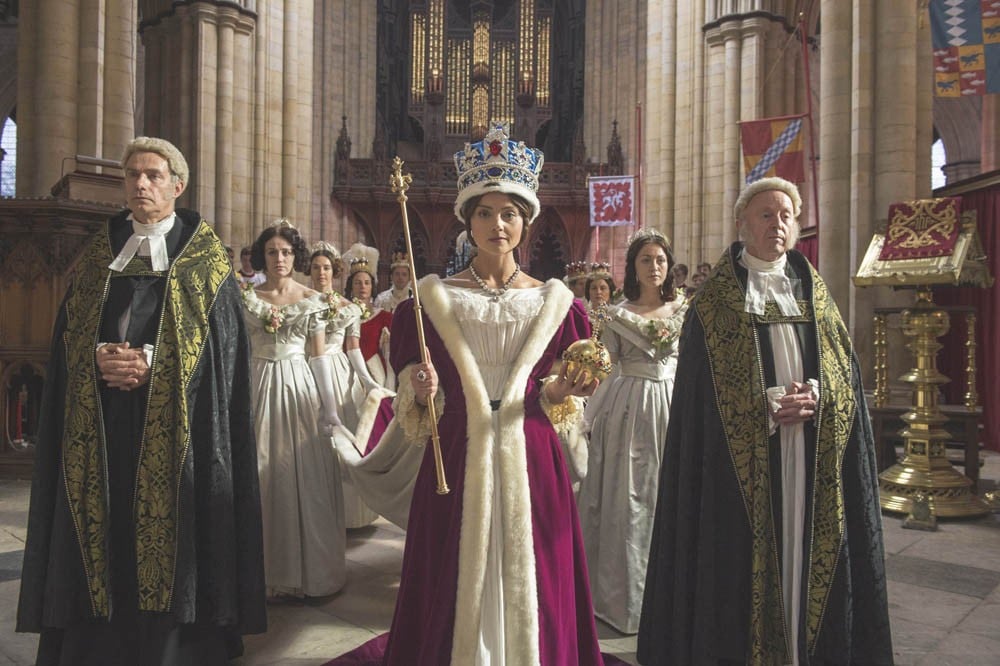
Why have recent dramatisations of the lives and reigns of female monarchs proved so popular?

Dear All,
It’s an odd sort of thing that two very popular recent TV series centre around two long reigning British queens: Victoria and Elizabeth II.
The Crown (Netflix) is a compelling re-telling of the life of the longest reigning British monarch to date and interlinks the personal life of Queen Elizabeth with the main political and sociological events of that time, while Victoria (ITV) tells the story of the formidable queen, and later Empress of India, who ruled at the height of British colonial power. Both series are, in effect, Royal soap operas and are highly watchable because of, among other things, the pretty frocks, the splendid palaces.
Of course the plots, the writing and the historical context also add to reasons these series have proved so popular but I suspect that at the root of our interest lies a rather frivolous fascination with princess stories and the idea of the gilded cage that is their life. Why else would we be so interested in the story of the royal family? Why do princesses and royals continue to fascinate us even in the post-Diana world? And why is the British monarchy -- which many would term a complete anachronism -- of particular fascination?
In the case of The Crown, part of the fascination lies in the fact that the monarch being portrayed is still alive and the imitation aspect of it is impressive (Clare Foy does a fine turn as the no-nonsense pearls and corgis queen). In the case of Victoria, the interest lies perhaps partly in the fact that the lead actress is extremely pretty (unlike Queen Victoria who even in her youthful portraits has a hooked nose and a double chin), and partly in the way it brings events of the nineteenth century to life. There is also the tremendous on-screen sexual chemistry between the screen Victoria (Jenna Coleman) and her Prince Consort, Prince Albert (as played by Tom Hughes), something which is pretty much absent from The Crown.
Some people might also argue that one reason we are so interested in these dramas is because these are stories of working women and tell of how these powerful females balanced (or didn’t) their work with their personal life. But are these stories about female empowerment or are they just one level up from Disney stories of princesses?
These are the questions that plague those of us who are hooked on these Royal soap operas -- yet somehow feel uneasy about this habit. Yes, there is the whole political and historical context but it’s basically the family entanglements that hold viewers’ attention so strongly: the idea that the royals are just another dysfunctional family despite all the jewels, palaces and footmen they are just another family with rivalries, jealousies and problems. In this sense perhaps these soap operas are representative of the post-Diana era: they humanise the monarchs and reduce them to mere mortals despite the pomp and ceremony.
But the pretty princess bias does continue: the screen depictions of the Hanoverian looking Queen Victoria are evidence of this. Emily Blunt (in the film Young Victoria) and Jenna Coleman are both far too pretty to play the fairly dumpy looking young queen.
But whatever the historical details, both Victoria and The Crown rule have tended to rule the ratings. Confirming perhaps our Disney-conditioned fascination with life behind the palace walls…
Best wishes